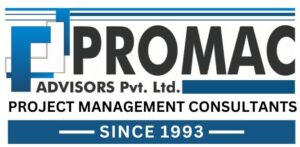
Introduction
In the construction industry, the stakes are high. Inadequate quality assurance (QA) can lead to catastrophic outcomes, including structural failures, safety hazards, and costly delays. Recent findings for 2024 highlight that poor QA processes are responsible for over 55% of construction defects, resulting in repair costs exceeding $75 billion annually. These figures emphasize the urgent need for effective QA practices from the outset.
What is Quality Assurance?
Quality assurance in construction is a systematic approach designed to ensure that all aspects of a project—ranging from materials and workmanship to processes and final inspections—meet predefined standards and specifications. In today’s rapidly evolving construction landscape, characterized by tight deadlines and budget constraints, QA plays a crucial role in:
- Preventing Defects: Identifying and addressing potential issues early.
- Ensuring Safety: Adhering to stringent safety protocols.
- Meeting Regulatory Requirements: Complying with industry standards and regulations.
- Delivering Client Satisfaction: Achieving a final product that aligns with client expectations.
Ensuring Safety and Compliance
- Importance of Safety: QA processes are integral to ensuring safety on construction sites. With recent studies indicating a 20% increase in site accidents due to overlooked QA measures, rigorous inspections, audits, and testing are crucial. QA practices help identify and mitigate hazards, such as structural weaknesses, unsafe scaffolding, and malfunctioning machinery, before they become critical issues.
- Regulatory Compliance: Compliance with building codes and regulations is non-negotiable. In 2024, regulatory bodies have introduced stricter standards to enhance safety and environmental sustainability. QA teams must stay abreast of these changes to ensure every aspect of the project meets current regulations. This includes implementing the latest energy efficiency standards and adhering to new environmental impact guidelines.
Achieving Cost Efficiency
- Avoiding Rework: Rework, or correcting mistakes, can significantly impact a project’s budget and timeline. With recent reports showing that rework accounts for up to 30% of construction costs, effective QA is essential for catching errors early and reducing costly corrections. By detecting issues during the early stages, QA helps maintain project schedules and control costs.
- Resource Optimization: Efficient use of resources—materials, labor, equipment, and time—is critical for cost management. QA ensures that resources are utilized effectively, minimizing waste and avoiding budget overruns. Advanced QA practices, including digital tracking and real-time monitoring, help optimize resource allocation and reduce inefficiencies.
Building Reputation and Trust
- Client Satisfaction: Delivering high-quality projects through robust QA practices enhances client satisfaction. In 2024, client expectations are higher than ever, with a strong focus on quality and precision. Projects that meet or exceed client expectations lead to positive reviews, recommendations, and repeat business. Satisfied clients are more likely to engage with and refer construction companies known for their QA excellence.
- Market Reputation: A company’s commitment to QA significantly impacts its market reputation. Firms recognized for their stringent QA processes are perceived as more reliable and professional. This reputation can be a key differentiator in attracting new clients and securing contracts, providing a competitive edge in the industry.
Conclusion
Quality assurance is a cornerstone of successful construction projects. By ensuring safety and compliance, enhancing durability, achieving cost efficiency, building reputation and trust, and facilitating smooth project delivery, QA processes contribute to high-quality outcomes that meet client expectations and industry standards.
Construction professionals are encouraged to prioritize QA to ensure the safety, efficiency, and success of their projects. Investing in QA is an investment in the future of the construction industry, leading to better project outcomes and a stronger market presence.
FAQ: The Importance of Quality Assurance in Construction
- What is QA in construction? Quality Assurance (QA) ensures construction projects meet required standards through systematic inspections, testing, and adherence to specifications.
- Why is QA important for safety? QA processes help prevent accidents by ensuring that safety protocols are followed and the final structure meets all safety requirements.
- How does QA ensure regulatory compliance? QA verifies that all aspects of construction adhere to building codes, regulations, and industry standards, avoiding legal and safety issues.
- How does QA avoid rework? QA identifies and addresses errors early, minimizing the need for costly corrections and maintaining project timelines and budgets.
- How does QA optimize resources? QA ensures efficient use of materials, labor, and equipment, reducing waste and staying within budget.
- What is the impact of QA on client satisfaction? Effective QA leads to high-quality project outcomes, resulting in satisfied clients, positive reviews, and repeat business.
- How does QA affect a company’s reputation? Companies with strong QA practices are viewed as more reliable and professional, which can attract new clients and secure contracts.
What are the benefits of prioritizing QA? Prioritizing QA enhances safety, compliance, cost-efficiency, client satisfaction, and overall project success, setting a standard for industry excellence.










